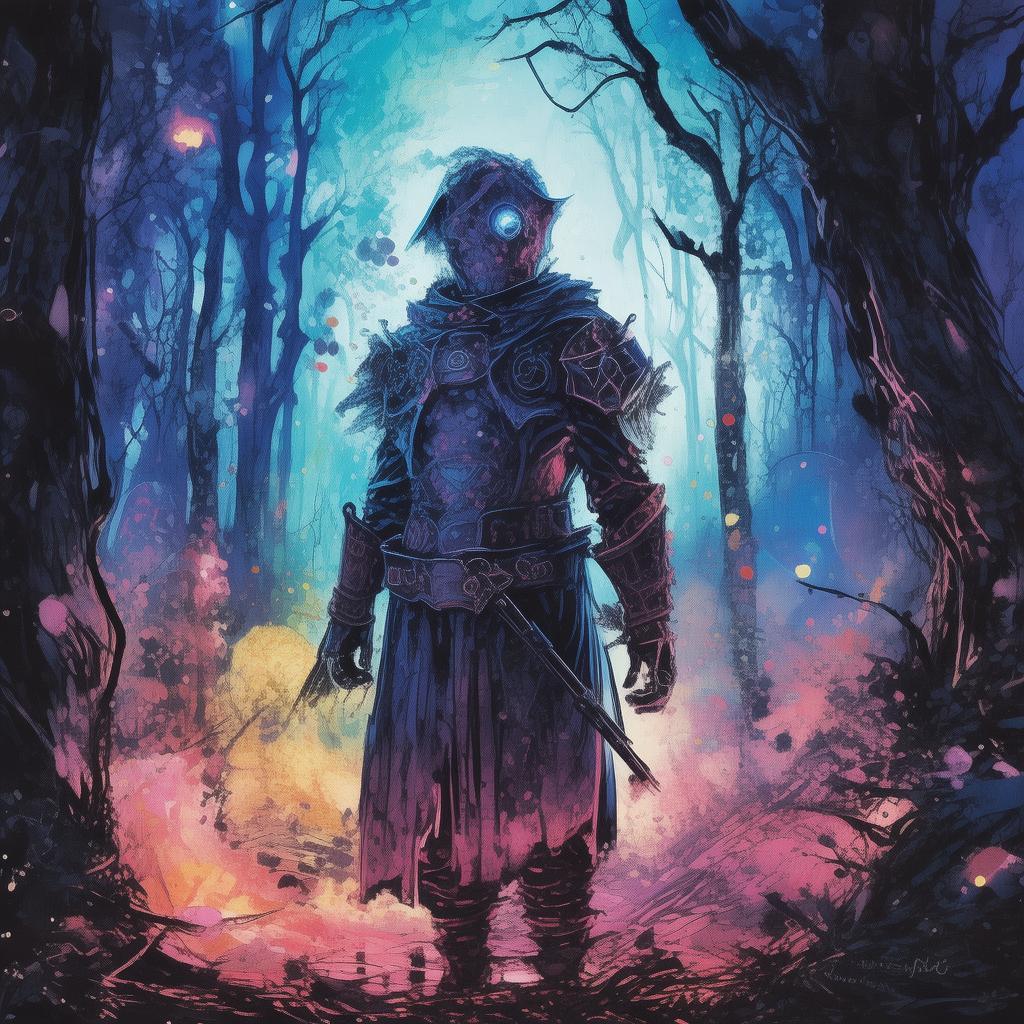The Rain God's Last Testament
In the heart of the ancient, rain-drenched forest, where the trees whispered secrets to the wind and the rivers sang lullabies to the moon, there stood a village hidden from the world's eyes. This was the village of Lirin, a place where the Rain God was not just a deity, but a living presence that sustained the life of the land and its people.
Lirin was ruled by an ancient prophecy that spoke of a guardian, a chosen one who would protect the village from the whims of the Rain God. This guardian was tasked with ensuring the balance between the village's needs and the divine decrees of the Rain God. The guardian was not just a protector but also a bridge between the mortal and the divine.
The current guardian, Elara, was a woman of great strength and wisdom. She had served the village for many years, her heart as true to the Rain God as the rivers that flowed through the land. But as the seasons changed, a new challenge arose that would test her loyalty and the very essence of her being.
The Rain God, known to the people as Thalassa, had been absent for a long time. His absence was felt in the withering crops and the dry wells, a sign that the balance between the village and the divine was shifting. The elders of the village grew anxious, fearing that without Thalassa's guidance, the land would become barren and the people would suffer.
In the midst of this crisis, a mysterious figure appeared in the village. He claimed to be a seer, a man who could see the future and understand the will of the gods. His name was Orin, and he brought with him a message from Thalassa: a test for Elara.

Orin spoke of a vision he had seen, a vision of a great drought that would ravage the land unless Elara could perform a ritual to invoke the Rain God's favor. The ritual was complex and dangerous, requiring the sacrifice of a virgin to appease Thalassa. The village was divided; some believed Elara would be blessed by the Rain God, while others feared the loss of a young life.
Elara, torn between her duty to the village and her respect for the Rain God, sought guidance from the elders. They, too, were divided, with some advocating for the ritual and others arguing that it was too great a sacrifice. In the end, it was the young warrior, Kael, who spoke up.
Kael was Elara's protégé, a young man who had shown great potential but had never faced such a moral dilemma. "The Rain God is a deity of life," Kael said, his voice steady despite the weight of the decision. "To sacrifice a life to save the village is to ignore the very essence of the Rain God's creation. We must find another way."
Elara, moved by Kael's words, sought the wisdom of the ancient texts that spoke of the Rain God's true nature. She discovered that the Rain God was not just a giver of life but also a protector of balance. The true ritual, it seemed, was not one of sacrifice but one of harmony—a balance between the village's needs and the divine's will.
With Kael by her side, Elara embarked on a quest to find the source of the drought. They journeyed through the rain-soaked forest, facing trials that tested their courage, their wisdom, and their bond. Along the way, they encountered spirits of the forest, both benevolent and malevolent, each with a message about the nature of power and sacrifice.
The climax of their journey came when they reached the heart of the forest, where the ancient tree of life stood. This was the place where the Rain God was said to reside. Elara and Kael found themselves facing a choice: to invoke the Rain God's favor through the ritual of sacrifice or to find a way to restore balance without it.
In a moment of profound clarity, Elara realized that the true power of the Rain God lay not in the ability to bring rain or to bring drought, but in the balance that he maintained. She and Kael performed a ritual of harmony, combining the elements of the forest with the wisdom of the elders, and the drought lifted.
The village was saved, and Elara's reputation as a guardian was restored. But the true transformation came from within. Kael, who had once seen himself as a warrior, now understood the deeper meaning of power and sacrifice. He realized that true strength lay not in the sword but in the heart.
The Rain God, Thalassa, appeared to Elara and Kael, his form a gentle mist that danced around them. "You have passed the test," he said. "You have learned that power is not about taking, but about giving. You have shown that true strength comes from the heart."
And so, the story of Elara and Kael became a legend, a tale of redemption and the true nature of the Rain God's power. It was a story that would be told for generations, a reminder that the greatest strength lies in the balance between the divine and the mortal, between life and death, and between sacrifice and harmony.
✨ Original Statement ✨
All articles published on this website (including but not limited to text, images, videos, and other content) are original or authorized for reposting and are protected by relevant laws. Without the explicit written permission of this website, no individual or organization may copy, modify, repost, or use the content for commercial purposes.
If you need to quote or cooperate, please contact this site for authorization. We reserve the right to pursue legal responsibility for any unauthorized use.
Hereby declared.









